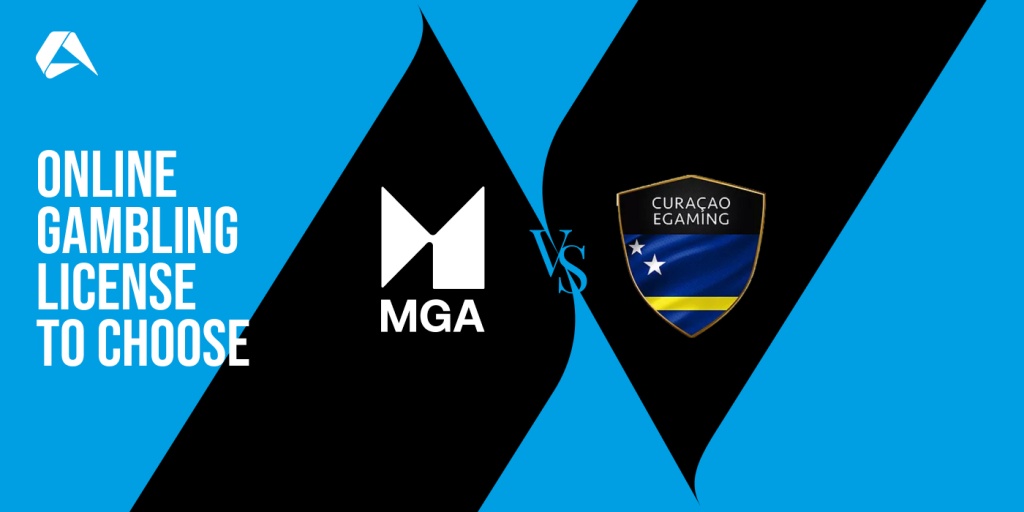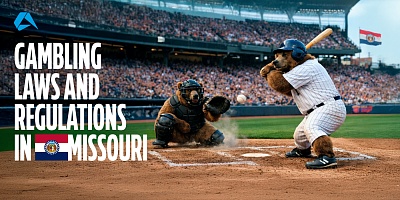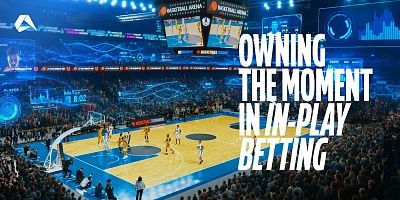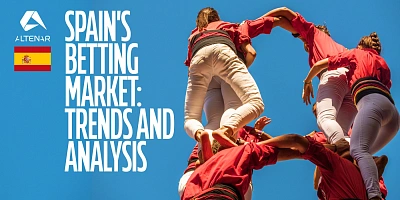Choosing the right gaming licence is a strategic decision that can shape the future of your business. As such, Malta Gaming Authority and Curaçao eGaming licences are two of the most sought-after options, appealing to new and established operators alike due to their broad access to global markets and straightforward application processes.
However, apples are not oranges, and some key differences and benefits ultimately make one option more suitable for your iGaming business. So, let’s dive in and weigh each to help you decide which licence best aligns with your operational goals and market ambitions.
Jurisdiction Overview
Malta and Curaçao gaming licences are two popular licensing options for iGaming operators, appealing to operators seeking value and broader global reach. With its strict EU regulations, Malta offers high credibility and market access within Europe, while Curaçao provides a more affordable, flexible alternative with quicker application processes.
Malta Gaming Authority (MGA)
Established in 2001, the Malta Gaming Authority is a leading regulatory body within the European Union, renowned for its comprehensive governance and high standards in the iGaming industry. Located in the Mediterranean, Malta's strategic position has been one of many factors facilitating its rise as a global hub for online gaming.
The MGA's stringent regulations, comprehensive player protection measures, and adherence to EU directives have made it a preferred choice for operators seeking credibility, stability, and access to European markets. For these reasons, its reputation for transparency and efficiency continues to attract top-tier operators, reinforcing Malta’s status as a trusted jurisdiction for iGaming licensing.
Curaçao eGaming Licence
Located in the Caribbean Sea off Venezuela’s coast, Curaçao has been issuing gaming licences since 1996 and has established itself as a pioneer in online gaming regulation. Over the years, Curaçao has evolved into a prominent licensing hub due to its affordability and straightforward application process, making it especially appealing to startups and smaller operators. Its licence system offers a degree of flexibility, which allows operators to start quickly with minimal overheads.
These key features and its longstanding experience have cemented Curaçao’s reputation as a cost-effective and accessible option for those entering the iGaming industry. However, In September 2023, Curaçao initiated a comprehensive reform of its licensing framework to tighten regulations, aligning more closely with international standards and enhancing its global credibility.
Key Differences Between Malta and Curaçao Licences
Due to their shared advantages, choosing between Malta and Curaçao gaming licences can be challenging. Both offer access to different markets and have straightforward application processes, offering fast and varied market access. In many respects, both licences can be considered astute, financial-advantageous options. Malta provides value through its EU status, while Curaçao is a lower-cost alternative.
However, the decision becomes clearer when considering their fundamental differences, which can significantly impact an operator’s strategy and long-term success.
Regulatory Environment
The regulatory environment for gaming licences in Malta and Curaçao differs significantly. Malta, through the Malta Gaming Authority, enforces strict regulations with frequent audits and player protection measures. As a result, it has established a solid global reputation for compliance and safety.
Curaçao, however, has traditionally operated under a more flexible framework with less stringent regulations, leading to the perception of weaker player protection. Nonetheless, Curaçao’s licensing framework has been undergoing recent reforms to enhance its credibility and appeal to a broader base of established operators seeking a more regulated environment.
Further information on the conditions for a Curaçao online gaming licence is available from the GBC licensing conditions page.
Cost and Application Process
Curaçao offers lower costs and a quicker approval process, typically three months or less, with a single licence covering all gaming operations. This simplicity appeals to many operators.
In contrast, Malta has higher application costs and taxes, with a longer processing time of 3-6 months. The MGA provides multiple licence types tailored to specific gaming activities, offering more flexibility and alignment with different business models. This approach resonates better with operators who prioritise regulatory diversity and operational control within the European market.
Taxation and Fees
Malta and Curaçao offer distinct taxation and fee structures for gaming licences, each catering to different needs. Malta’s framework is more intricate, with higher application and annual fees that reflect its comprehensive regulatory standards and strong player safeguards. This complexity benefits EU-based operators by encouraging greater compliance and fairness.
Curaçao, however, presents a more straightforward and affordable option with a flat 2% gaming tax rate on an operator's net profits. This low-cost environment appeals to startups and smaller operators looking to maximise profitability with limited initial investment.
Licence Types
Malta offers different licences tailored to specific gaming activities: Type 1 for casino games, Type 2 for sports betting, Type 3 for games where revenue is commission-based, and Type 4 for skill-based games. This structure allows operators to choose a licence that aligns closely with their business model.
Curaçao, on the other hand, offers a single licence covering all gaming types. While this approach simplifies the process, it does, however, lack the granular structure needed by operators who wish to focus on specific gaming verticals or differentiate their offerings within the market.
Market Access and Restrictions
Malta’s position within the European Union grants wider acceptance across Europe. This EU alignment allows operators with an MGA licence to easily access the European market with fewer restrictions on advertising and operations due to its compliance with EU regulations.
In contrast, a Curaçao licence is viewed less favourably in some jurisdictions, mainly Europe and North America. This is due to the perception of lower regulatory standards, which can result in restrictions or outright bans, thus limiting the market reach and audience size for operators under a Curaçao licence.
Player Trust and Brand Perception
An MGA licence is widely recognised for its commitment to fairness, safety, and transparency. This fosters strong player trust and enhances brand reputation in the competitive iGaming market. Operators licensed by the MGA are often perceived as high-quality because they adhere to stringent standards.
Curaçao licences have a mixed reputation. While many operators opt for Curaçao due to lower costs and more straightforward requirements, the jurisdiction's past association with less reliable operators can affect player trust and the credibility of brands using this licence. This perception may pose challenges for those aiming to build a solid, reputable brand.
Technological Infrastructure and Support
Malta boasts a well-established technological infrastructure featuring advanced data centres and a range of support services integrated into the iGaming ecosystem. This environment, coupled with extensive secondary services like legal and IT support, makes Malta an excellent choice for operators seeking stability and reliability.
Curaçao offers a different setup revolving around integrated solutions. Typically, they offer a solution that bundles hosting and IT infrastructure with the licence. While this one-stop approach appeals to some, the quality and reliability of these services can often vary, potentially lacking the sophistication and dependability of Malta's more mature infrastructure.
Reputation and Global Acceptance
Malta’s gaming licence is widely accepted as the gold standard in the iGaming industry. It is known for its credibility and trustworthiness among operators, players, and partners. This reputation stems from Malta’s regulatory framework and commitment to maintaining high standards.
Curaçao’s licence has a mixed reputation. It is often perceived as less rigorous in regulatory enforcement, which can affect its global acceptance and, ultimately, the trust it garners from players and industry stakeholders.
Summary & Key Takeaways
Here is a quick overview charting the critical differences between Malta and Curaçao gaming licences:
| Restrictions | Malta | Curaçao |
|---|---|---|
| Tax & Fees | Higher - Complex | Lower - Simple |
| Application Process | 3 - 6 months | 1-3 months |
| Licence Types | Multiple and specialised | Single licence |
| Market Access | EU-wide | Limited in some regions |
| Reputation | Trusted - Gold standard | Lower - Mixed |
| Player Protection | Strongly regulated | Less stringent |
| Technical Support | Advanced and comprehensive | Bundled and variable |
| Flexibility | Specific to business needs | Broad and less specific |
| Global Acceptance | Widely recognised | Regionally restricted |
Which Licence Should You Choose?
When deciding on a gaming licence, consider your target market and audience first and foremost. If you're eyeing the European region, Malta's licence is a solid bet due to its broad acceptance and strict EU compliance. Curaçao, while easier on the bank balance, isn't as well-received in Europe, which could ultimately limit your reach.
Your business model and resources play a huge role, too. Curaçao offers a more straightforward, less expensive entry point with fewer regulatory hurdles for startups or those on a tighter budget. But if you aim to build a reputable brand with a strong foundation, Malta's more rigorous framework can help elevate player trust and prestige.
Don’t overlook compliance and operational needs either. Malta's stringent standards ensure high player protection, while Curaçao's more flexible approach might suit those who prioritise cost over comprehensive oversight. And remember, banking relationships are smoother in Malta. Curaçao, however, offers greater flexibility for those looking to expand quickly across various markets. In all circumstances, choose wisely based on your long-term goals and where you want your business to grow.
Moving forward, the optimal approach to selecting the most suitable licence for your iGaming operation is to start by defining your business objectives. Are you looking for rapid growth, market penetration, or long-term stability? Evaluate the compliance requirements and operational flexibility each licence offers against these goals. Furthermore, conducting a comprehensive cost-benefit analysis to understand the financial implications is highly advisable. Consulting with industry experts or legal advisors can also provide tailored insights for your operational strategy.
Are you ready to take the next step in your iGaming journey? Speak with Altenar’s industry experts now to navigate complexities and gain insights tailored to your business model and growth ambitions.
A Step-by-Step Guide to Securing Malta and Curaçao Licences
Applying for a gaming licence in Malta or Curaçao requires understanding each jurisdiction's specific procedures and requirements. This guide outlines the essential actions an operator must take to secure the right licence for their iGaming business.
Malta Gaming Authority (MGA)
While the steps for applying for a Malta Gaming Licence can vary depending on the type of licence you are applying for, all follow a basic structure. Here’s an outline of the basic steps involved:
Step 1: Pre-Application Preparation
-
Conduct a Feasibility Study: Assess the business model, target market, and financial projections to determine the most suitable licence type.
-
Assemble Required Documentation: Gather all necessary documents, such as a detailed business plan, financial records, proof of funding, and personal background checks for key personnel, to ensure that all information is readily available.
Step 2: Submission of Application
-
Complete the Application Form: Submit a comprehensive licence application to the MGA, including detailed information about the company, shareholders, directors, and the proposed gaming operation.
-
Pay the Application Fee: Alongside the application form, operators must pay a non-refundable application fee. This fee varies depending on the licence type and the operation's scale.
Step 3: Due Diligence
-
Background Checks: The MGA conducts background checks on the company and its key individuals. This includes reviewing the applicant’s criminal record, financial stability, and integrity.
-
Fit and Proper Test: This test assesses whether the applicant and its officers are suitable to hold a gaming licence.
Step 4: Business Plan and Operational Review
-
Evaluation of Business Plan: The MGA reviews the submitted business plan to ensure it aligns with the gaming regulations in Malta and demonstrates a viable, sustainable business model.
-
Assessment of Operational and Financial Projections: The MGA evaluates the operator’s financial stability and capability to sustain operations over time.
Step 5: System and Technical Audit
-
Technical Setup Review: The MGA conducts a technical audit of the operator’s gaming platform, software (RGNs), and systems to ensure compliance with regulatory requirements.
-
Compliance Audit: An audit is performed to ensure compliance with data protection, anti-money laundering measures, and responsible gaming practices.
Step 6: Issuance of Licence
-
Conditional Licence Issuance: The MGA issues a conditional licence once the operator passes all assessments.
-
Go-Live Approval: After the final compliance checks and testing, the MGA grants full licence status to launch operations fully.
Step 7: Ongoing Compliance and Reporting
-
Regular Reporting Requirements: Operators must submit regular reports detailing their financial performance, player activity, and compliance incidents to the MGA.
-
Annual Audits and Reviews: The MGA requires yearly audits of the operator’s financial statements and compliance procedures.
-
Continuous Monitoring and Updates: The operator must continually update the MGA about any changes in their business structure, key personnel, or operational strategies. Failure to do so may result in penalties or licence revocation.
Further Notes:
While the overall application process follows a similar structure, the specific requirements and documentation needed can differ based on the type of licence applied for. For example, a Type 1 licence requires detailed information about the random number generator (RNG) software used for casino games. In contrast, a Type 2 licence requires details on the risk management system for sports betting.
Furthermore, each licence type might have different technical standards and compliance measures tailored to the nature of the gaming activity involved. Thus, operators need to understand the unique requirements associated with each licence type when preparing their applications for the MGA.
Curaçao eGaming Licence
The process of obtaining a Curaçao eGaming Licence is more straightforward than applying for an MGA licence. Subsequently, it is more accommodating to new operators and startups. Here’s an outline of the steps involved:
Step 1: Pre-Application Preparation
-
Research the Licensing Requirements: Before diving in, learn and understand Curaçao's licensing conditions, including compliance with local laws and gaming regulations.
-
Select a Master Licence Holder: Curaçao licences are issued through one of the four master licence holders. Operators need to choose a master licence holder who will oversee their application and ongoing compliance.
-
Prepare Necessary Documentation: Gather all required documents, such as a detailed business plan, information on the corporate structure, financial statements, and identification documents for all key individuals involved.
Step 2: Initial Application Submission
-
Submit the Application: Provide a completed application form to the Curaçao Gambling Control Board (GBC), including all required documentation.
-
Pay Application Fees: Typically, an application fee is required upon submission. This fee is paid to the master licence holder and covers the initial review and processing of the application.
Step 3: Review and Due Diligence
-
Background Checks: The master licence holder conducts due diligence on the operator and key personnel, including criminal background checks and financial reviews.
-
Technical Infrastructure Assessment: Operators must demonstrate that their technical infrastructure, including gaming software and servers, meets Curaçao’s requirements.
Step 4: Licence Approval and Issuance
-
Provisional Approval: The operator may receive provisional approval once the application passes the initial review and due diligence.
-
Final Licence Issuance: After meeting all initial requirements and passing the final checks, the master licence holder issues the Curaçao eGaming licence, allowing the operator to begin full-scale gaming operations.
Step 5: Set Up and Go Live
-
Server Setup and Hosting: The operator must establish gaming servers in Curaçao or through an approved hosting provider. The master licence holder often assists with these technical setups.
-
Go-Live Testing: Operators are also typically required to undergo a go-live testing phase for compliance with Curaçao’s regulations before fully launching to the public.
Step 6: Ongoing Compliance and Reporting
-
Regular Compliance Checks: After the licence is issued, operators must continue to comply with Curaçao’s regulations, which may include periodic reviews and audits by the master licence holder to ensure ongoing adherence to standards.
-
Annual Licence Fees: Operators must pay yearly fees to maintain their licence. These fees are usually based on the operator’s revenue and are payable to the master licence holder.
-
Continuous Reporting Requirements: Operators must regularly report on their financial performance, player activities, and any significant business or operational structure changes.
Further Notes:
Since 2023, Curaçao has been moving towards a more tightly regulated gambling environment to align with international standards and enhance its global credibility. This shift addresses past concerns about inadequate oversight, aiming to improve player protection and enhance anti-money laundering measures. For iGaming operators, these changes mean navigating stricter compliance requirements and possibly facing higher operational costs in the immediate future.
However, it offers significant benefits, too. A stronger regulatory framework offers greater global market access and increased trust from players and partners. Although these regulations might reduce flexibility, they establish a more reliable and credible foundation for operators looking to grow sustainably and enter more regulated markets. Ultimately, this will make a Curaçao licence more appealing to established operators.
Disclaimer
This information is not intended to be legal advice and is solely extracted from open sources. It should not be relied upon as a substitute for professional legal advice, and Altenar does not accept any liability for its use.













